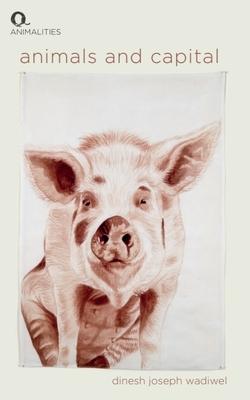In the 20th century, capitalist animal agriculture emerged with a twofold mission: to ruthlessly exploit animals for their labour time and enlarge human food supplies. The results of this process are clear. Animal-sourced foods have expanded exponentially. And simultaneously, hundreds of billions of animals confront humans and machines in brutal, antagonistic relations shaped by domination and resistance.
Building on Karl Marx's value theory, Dinesh Joseph Wadiwel argues that factory farms and industrial fisheries are not merely an example of unchecked human supremacism. Nor a result of the victory of market forces. But a combination of both. In Animals and Capital Wadiwel untangles this contemporary handshake between hierarchical anthropocentrism and capitalism.

In the 20th century, capitalist animal agriculture emerged with a twofold mission: to ruthlessly exploit animals for their labour time and enlarge human food supplies. The results of this process are clear. Animal-sourced foods have expanded exponentially. And simultaneously, hundreds of billions of animals confront humans and machines in brutal, antagonistic relations shaped by domination and resistance.
Building on Karl Marx's value theory, Dinesh Joseph Wadiwel argues that factory farms and industrial fisheries are not merely an example of unchecked human supremacism. Nor a result of the victory of market forces. But a combination of both. In Animals and Capital Wadiwel untangles this contemporary handshake between hierarchical anthropocentrism and capitalism.